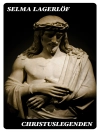In ‘Letters to the Clergy on the Lord’s Prayer and the Church, ‘ John Ruskin articulates a profound exploration of spiritual principles, synthesizing theological contemplation with practical guidance for the clergy of his time. Written during the Victorian era, this text adopts a compelling epistolary format, characterized by Ruskin’s eloquent prose and vivid imagery. He addresses the significance of the Lord’s Prayer, proposing it as a foundation for both personal faith and ecclesiastical practice. This work not only reflects the socio-religious dynamics of 19th-century England but also serves as a critique of institutional religion, urging a return to genuine spiritual engagement and moral integrity. John Ruskin (1819-1900), renowned as an art critic and social thinker, integrated his diverse interests in art, architecture, and ethics into his writings. His experiences with the socio-economic challenges of the Industrial Revolution ignited a desire to reform both society and the church. The synthesis of Ruskin’s artistic sensibilities and his philosophical inquiries reveals a deep commitment to fostering a more authentic and compassionate Christian community. This book is an invaluable resource for readers interested in the intersection of faith and social responsibility. It invites contemporary clergy and lay readers alike to reflect on their spiritual lives, drawing inspiration from Ruskin’s passionate advocacy for a deeper understanding of the Christian faith and its implications for both individual and communal life.
Об авторе
John Ruskin (1819-1900) was an eminent Victorian whose expertise spanned a remarkable range of disciplines, including art, architecture, literature, and social criticism. Known for his eloquent writing and progressive social theories, Ruskin used his works to address socio-economic conditions and advocate for a connection between art, nature, and society. He was a luminary in Victorian England, holding the inaugural Slade Professorship of Fine Art at the University of Oxford and inspiring the Arts and Crafts Movement. His literary style was characterized by fervent prose advocating moral and aesthetic values in society. One of Ruskin’s notable contributions is ‘Letters to the Clergy on the Lord’s Prayer and the Church’ (1880), wherein he examined the relationship between religious practices and the ethical life of the church. This book mirrored his broader concerns with morality in society and the potential for religion to advocate for social justice. He was also renowned for other influential works such as ‘Modern Painters’ (1843-1860), ‘The Seven Lamps of Architecture’ (1849), and ‘The Stones of Venice’ (1851-1853), which have cemented his legacy as a visionary thinker and critically acclaimed author.












